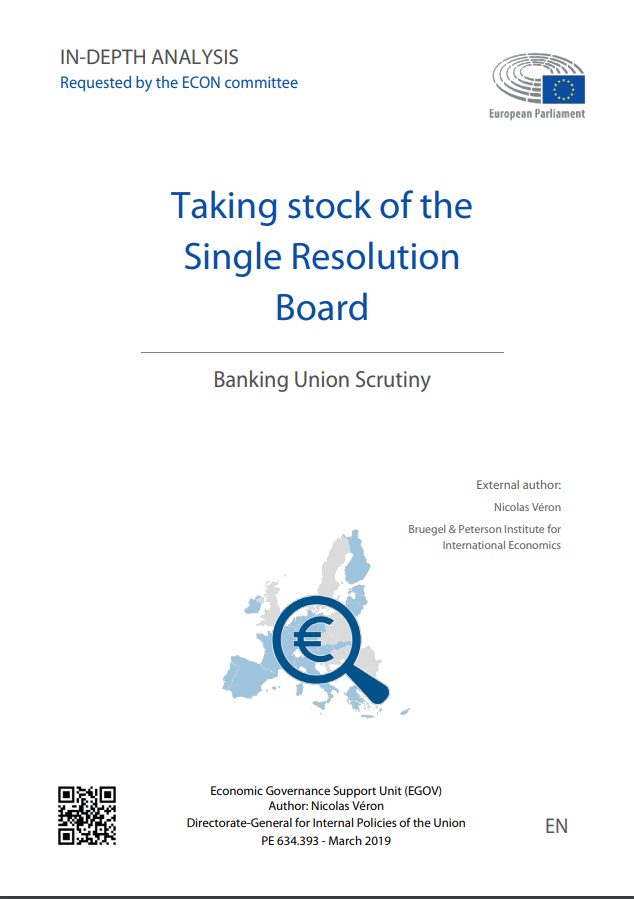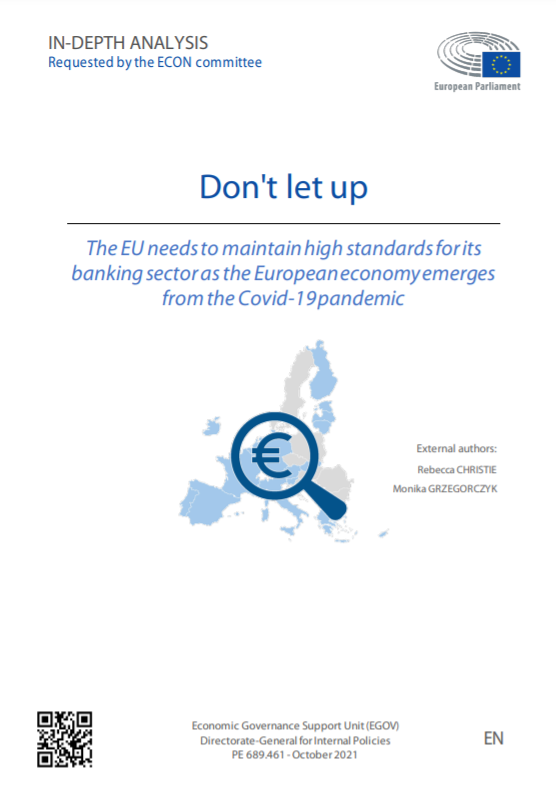External Publication
Taking stock of the Single Resolution Board: Banking union scrutiny
The Single Resolution Board (SRB) has had a somewhat difficult start but has been able to learn and adapt, and has gained stature following its first bank resolution decisions in 2017-18. It must continue to build up its capabilities, even as the European Union’s banking union and its policy regime for unviable banks continue to develop.
This material was originally published in a paper provided at the request of the Committee on Economic and Monetary Affairs of the European Parliament and commissioned by the Directorate-General for Internal Policies of the Union and supervised by its Economic Governance Support Unit (EGOV). The opinions expressed in this document are the sole responsibility of the authors and do not necessarily represent the official position of the European Parliament. The original paper is available on the European Parliament’s webpage (here). © European Union, 2019
The Single Resolution Board (SRB) was established as a key component of the European banking union initiated in mid-2012 at the height of the euro area crisis. It has had a somewhat delayed and difficult start, largely explained by competing objectives in the legislation that established it. But it has now plausibly passed many of its first few tests, and has displayed an encouraging propensity to learn and adapt. Further efforts are needed to reach a satisfactory steady state in the next few years, assuming no major crisis in the meantime. This study identifies three areas that might justify specific scrutiny:
- First, and in accordance with its founding legislation, the SRB needs to build an autonomous ability to determine if a bank is failing or likely to fail, while avoiding unnecessary duplication of resources or processes with the Single Supervisory Mechanism. This might be supported as necessary by onsite inspections, which the SRB has the authority to conduct but for which it has not yet established its capability.
- Second, the SRB should take a multi-dimensional approach to crisis preparedness, beyond pursuing its core task of resolution planning. In particular, it should ensure it will be able to concretely draw on the skills and experience needed when confronted with the highly challenging tasks that may come with a major crisis.
- Third, and with a medium-term time horizon in mind, legislators should consider reforming the SRB’s governance framework so as to establish it further as an authoritative, operationally independent decision-making entity.






















